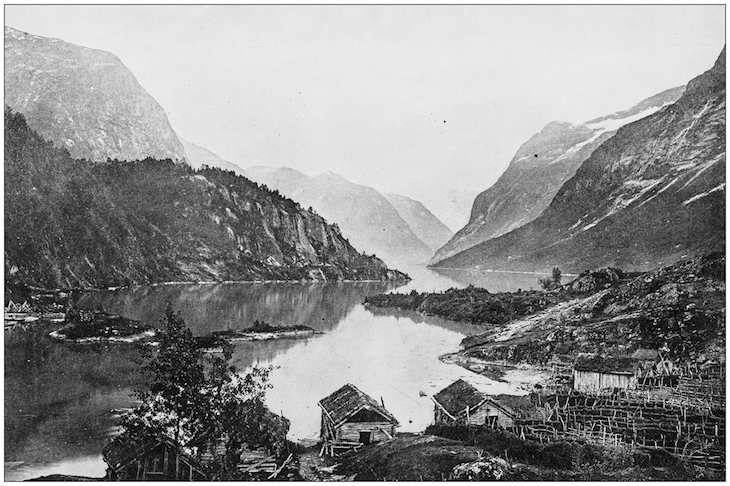‘Close your eyes and be absorbed by the storytelling,’ urged Jon Manel (the new head of podcasting at BBC World Service) as we settled into our chairs. We were just about to hear the ‘world première’ of the latest podcast from the BBC World Service, launched dramatically in the Radio Theatre at Broadcasting House in front of a packed, expectant audience, with full surround sound, every raindrop magnified (and there was a lot of it). It was odd to realise quite how far podcasting has already transformed radio. Along with the usual Radio 4 crowd (who were surprisingly enthusiastic about the chance to hear this latest podcast), there were hosts of young people, podcast devotees, not bound by schedules and controller-led programming, who trawl the web or follow Facebook to find the latest trend. There’s even a Podcast Brunch Club who meet in central London – it’s ‘like a book club’ but for audio (other branches meet in Bristol and Leicester).
Death in Ice Valley, made as a joint production with NRK (Norway’s licence-funded, public-service broadcasting channel), won’t be broadcast at all via the normal schedules but can only be listened to as a podcast. It’s an obvious attempt to capitalise on the phenomenal success of NPR’s Serial podcast, which you may remember retraced in 12 carefully crafted, and slowly released, episodes a murder from the 1990s in Baltimore, Maryland, and got the whole world, it seemed, talking about the case. Would the conviction of Adnan Syed stand up in court now? Was he really guilty? But Death in Ice Valley carries this new podcast genre (a true crime that raises many unsolved questions) much further, by paying attention not just to the investigative journalism but also to the listening experience. This is finely crafted radio, using sound to create atmosphere and a sense of place, an immersive encounter.
In the Radio Theatre it began to feel very cold and wet as we were taken in our imaginations to a lonely hillside above a black-water lake not far from the Norwegian city of Bergen in a valley called Isdal. The young woman’s body was found there in November 1970 by two young girls, badly burnt. Beside her were two bottles filled with water, some clothes, a few scraps of burnt paper and a scorched photograph. Since then nothing has been discovered about her identity. All the labels had been taken off her clothes. Who was the Isdal Woman? How did she die?
The Norwegian journalist Marit Higraff has spent the past two years investigating the case, intrigued to understand how a person can disappear and no one come to find her. She is now working with the documentary maker Neil McCarthy for the BBC to create ten initial episodes, which will be available weekly to those who sign up from 16 April, and may continue for longer, depending on what may be discovered. NRK hopes that by telling the Isdal Woman’s story on the World Service, with its global audience, some answers might be found. She was buried in a zinc coffin, in the hope that at some time in the future her family might come forward and she will be identified. ‘One of the main theories in this mystery is that the answers lie somewhere in Europe,’ says NRK. As Mary Hockaday, controller of BBC World Service English, told us in the Radio Theatre, ‘podcasts are changing the way we all listen and what we listen to.’
A lot of trouble has been taken to combine in Death in Ice Valley sharp reporting, vivid storytelling and an atmospheric soundscape. Not all podcasts can be said to have the same listening appeal, not even those produced by the BBC, which is rapidly increasing the number and range of ‘original’ podcasts, produced for access only online rather than for the traditional switch-on-and-be-surprised-by-what-you-hear broadcast method. The Boring Talks are, I fear, just that. I was quite intrigued to find out about wooden pallets. But even at just 12 minutes it felt too long.
More traditionally, Scott Cherry’s drama series A Small Town Murder (directed by Clive Brill) is back, with Meera Syal as family liaison officer Jackie Hartwell. This is so beautifully paced, the dialogue believable (as opposed to last week’s dreadful The Unforgiven, which was so leaden), and the storyline compelling. You’re taken right there, it’s so direct. As if the story is being told just to you. In fact, I’m going to have to stop writing right now so that I can catch the next episode as it goes out on air.






Comments